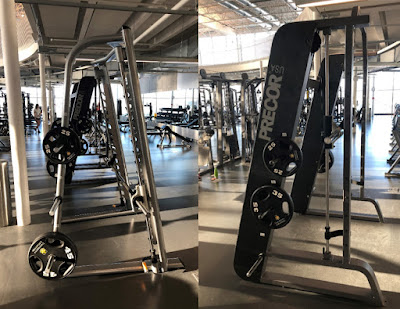Fuelling for an Active Lifestyle
by Adam Toffan, M.Sc, NSCA-CSCS, CSEP-CEP Assistant Fitness Training and Assessment Coordinator, Recreation Services at the University of Manitoba
Nutrition plays a crucial role in our body’s function.
From internal systems like the immune system to athletic performance. Aside from simply providing energy, evidence suggests that a meal's timing affects a wide variety of physiological functions, including the sleep/wake cycle, core body temperature, athletic performance, and mental alertness. Since activity is additional stress on your body, your dietary needs may change as you become more active. To get the energy you need, you need to consume an appropriate amount of protein, carbohydrates, fats and water. Protein is needed to maintain and rebuild tissues such as muscle. Carbohydrates are the body’s preferred energy source, especially during higher intensity activities. Fats are also used as an energy source but are the primary energy source at lower intensities. Water needs to be consumed to replace water loss through activity and can negatively affect performance if not maintained.
Moderation, variety, and balance are the keys to fueling an active lifestyle.
Because not all foods have all nutrients or even the same proportion of nutrients, you need variety and balance. When considering the Canadian Food Guide, a balanced diet means getting the recommended number of servings from each group on most days. This helps you get enough protein, carbohydrates, and fat, as well as many vitamins and minerals. But within those groups, you also need a variety of foods to make sure you also get the proper amounts of the various nutrients. Moderation means eating a little of everything but nothing in excess. All foods fit into a healthy diet if had in moderation.
Active people may have special nutritional needs.
Having an active lifestyle doesn’t usually require additional protein unless you are trying to build muscle. However, being more active does require more fuel in the form of carbohydrates (grains, fruits and vegetables). Carbohydrate is stored as ready energy in the liver and muscles, and this supply is used up very quickly during exercise. For endurance athletes, additional carbohydrate consumption during long bouts of activity may also be required because the body cannot store enough.
Timing of meals is also important for an active lifestyle.
You want to ensure you have enough energy stores to feel strong throughout your workout. However, portion size and timing need to be considered. Eating too much before being active can leave you feeling heavy and sluggish. Large meals should be eaten 3-4 hours before exercise. However, smaller meals or snacks can be consumed 1-3 hours before exercise. Small snacks before exercise should be high in carbohydrates to make sure you fuel up before exercise. Even if you are on a low-carb diet, it is recommended to consume some carbs before exerting yourself.
While eating before exercise is important for energy, it is also important to eat after exercise. Snacking after exercise helps replenish glycogen stores so you can carry on with your daily tasks after exercise. Having protein in your post-exercise snack is also beneficial because it helps prevent protein breakdown and stimulates tissue synthesis leading to maintained or increased muscle tissue. It was once advised to avoid fat after exercise because of negative effects on glycogen store replenishment. However, recent research suggests fat doesn’t reduce the benefits of protein and carbohydrate consumption around training. In fact, it actually might provide some benefits of its own!
Nutrition has a profound effect on our ability to be active and perform daily tasks. Make sure you are fueling yourself for the activity to get the most out of your workouts!
Aragon, A., Schoenfeld, B. (2013). “Nutrient timing revisited: is there a post-exercise anabolic window?” Journal of International Society of Sports Nutrition. Vol. 10(1).
Koehler, K, Drenowatz, C. (2019). “Integrated Role of Nutrition and Physical Activity for Lifelong Health.” Nutrients. Vol 11(7). Pp. 1437 – 1452.




Nutrition health services in birmingham dedicate their lives to helping other people reach fitness goals, and live life to the fullest. Whether you are just starting out or a seasoned athlete, personal training helps you reach the next level.
ReplyDeleteThank you for sharing the informative blog post. Keep posting like this. For information regarding health & fitness click here.
ReplyDeleteThank you for sharing this information. Aguirre Fitness offers semi-personal training for groups of 4-6 people in Henderson. Contact us if you want to hire a personal gym trainer in Las Vegas & its surrounding areas. For more information, visit the website & book your free 7-day transformational trial.
ReplyDeleteThank you for sharing the post. Personal trainers easily transform anyone with their different workouts & nutrition plans. They are skilled, experienced, professional, certified & well know their job. After examining your current body status they plan your workouts. Read the given blog & know the benefits of hiring personal trainers. For more information, contact Aguirre Fitness at (702) 308-7816 & get proper personal training and nutritional diet plans.
ReplyDelete